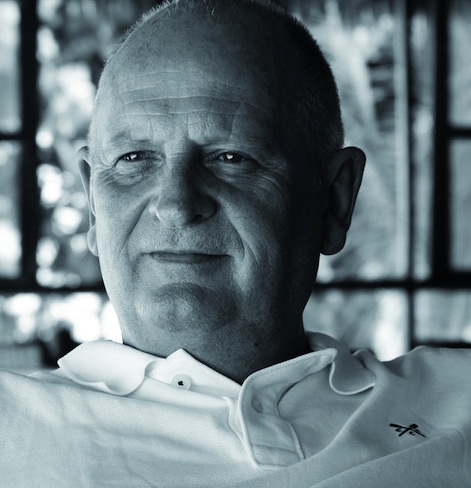How is Zanzibar’s economic outlook, we asked expert Graham Stewart Leslie. The Oman-based consultant is working with the government on a “Vision 2050”. “Go clean, green and cultural”, is his advice.

Corona brought tourism to a grinding halt worldwide. Did you manage to go on holiday this year?
Yes, in February I was fortunate to spend a week in Sri Lanka with my extended family just before world travel came to a thumping end.
Your predictions for Zanzibar are now shattered dreams. You forecasted 2020 was going to be “the best year in tourism ever” and in 2026 “poverty eradicated”.
The global collapse caused by the coronavirus has indeed wiped out all our sensible predictions based on about 100,000 jobs, tourism growing at ten per cent per annum and bringing in 80 per cent of foreign exchange. However, I believe, if handled smartly, the global shock could actually lead to a new, more self-reliant Zanzibar with greater socio-economic benefits to the communities.
What is your best-case scenario - for this year and beyond?
Realistically, there will be very little international tourists for the balance of 2020 and greatly reduced leisure travel worldwide in 2021 and in large parts of 2022. The pandemic has already fundamentally changed the psychology behind future selection criteria for travellers.
If this is your best, I don’t want to ask about the worst…
Don’t worry, not all is lost. I strongly believe Zanzibar has the potential to use this special time to prepare the nation for the return of more targeted tourism. More and more volume in tourism – this was a broken model even before the pandemic. A higher yield lower impact model is the long-term solution. Like a painter has a vision of his painting, Zanzibar needs a clear image of the future.
Could less dependency on tourism be the answer?
Zanzibar does not have too much tourism. But local people must be enabled to participate more. A shift away from volume to higher yield, meaning less visitors with more spending power, was always the recommended approach but now, born out of the corona pandemic, it has become a reality. Let’s use the chance to create a tourism model that is more inclusive for citizens and the environment. I believe a smart, green, inclusive tourism development and management of the nation’s natural and human assets are the most significant economic driver for the treasury and potential for job creation. Tourism – sustainable tourism – can be an engine to fight poverty. And you are right, why not look at the creation of other jobs, too. Manufacturing jobs for instance. Furniture factories, spice factories, IT technology – everything is possible if the will and vision are there.
How exactly can ordinary people benefit better?
Already prior to the pandemic our strategy for Zanzibar identified a more inclusive programme under the “Tourism for All” roadmap. Within this detailed plan the community and hospitality industry form economic partnerships. I am talking here about improved agriculture, rural job creation, minimising imports and improving the visitor’s experience of local, green and organic. Community zoning around hotels could enable communities to work within supply chains in manufacturing, power, farming, fisheries, logistics and so on. It makes no sense that 88 per cent of hotels consumables are imported while the population of Zanzibar remains largely poor.
You said earlier, the psychology of travellers has already changed?
Yes, we believe that mass tourism and cheap tourism will hardly exist in the next decade. The new tourism formula is risk free & green.
Corona has altered our mindsets?
It has. There is social distancing everywhere, and yet we connect more. We learned to reconnect with family and friends, to communicate more, to adapt new skills, to work from home, to learn about different cultures. The world community has taken a step back in time, and yes, there is an unprecedented global loss of jobs which will bring great hardships to many, but there are also chances for a new orientation. Funding from international donor agencies will be recalibrated, emerging economies will have to become more self-reliant. Nations need to accept this and look to a more sustainable economic model. This is the new normal.
What could be the model for Zanzibar? Is there a magic recipe to bring tourists back?
Clean-up! Zanzibar truly has unique cultural assets from a global attraction perspective and tourists will eventually come back. The recipe is more pragmatic than magical: Improving environmental conditions should be high on the agenda. Everybody would profit, the people of Zanzibar and the visitors coming to this wonderful island. Surveys and studies have shown: Effective conservation, clean water, good supporting health facilities, good infrastructure, integrated community engagement and fresh produce will become core attributes in the national DNA of any future successful tourism destination.
A long list – can it really be accomplished?
The will is there and the money is there. Zanzibar is receiving one billion dollars in grants and loans for community projects in the next ten years. Let’s use the reflective period of the next two years to push forward a clean-up campaign for Zanzibar and education for all.
Education for all?
Yes, free education starting with English language courses, health and safety, hygiene, housekeeping, IT, marketing, media, planning, programme management, conservation and the environment, rural self-reliance in food and nutrition, general family care & wellbeing and so on. Zanzibar has yet to develop a culture of focused learning. This would be a major transformation.